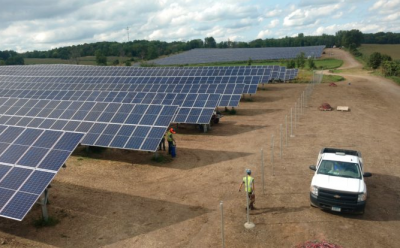After Trumps Solar Panel Tariffs – $2.5 Billion in Renewable Energy Projects Shelved

Renewable energy companies have decided to cancel or freeze $2.5 billion in investments on large solar panel projects following President Trump‘s decision to impose tariffs on imported panels, Reuters reported Thursday.
In an own goal for America – that number is more than twice the $1 billion that firms said they were planning to spend in the U.S. solar panel industry following Trump’s decision in January, according to Reuters.
As an example, Cypress Creek Renewables LLC told Reuters that it has cancelled or frozen $1.5 billion in projects in response to the tariffs. This is because the tariffs had increased its costs. Another company, Southern Current, also said that it put $1 billion worth of projects on hold. And that is just two companies that have already made decisions and announced project cancellations.
Neither of the companies gave Reuters any further details on the projects they were cancelling, saying that doing so would make sensitive information public.
However, both companies have asked that trade officials exclude large-scale panels used for their utility projects from the 30 per cent tariffs, which are set to last four years, falling by 5 per cent each year.
The vast majority of renewable energy companies and green groups opposed the tariffs when the Trump administration announced the measures earlier this year, saying they would make competition in the industry just too difficult to operate in.
The Solar Energy Industries Association made a prediction at the time that these new tariffs would raise prices and subsequently kill around 23,000 jobs in the USA.
Reuters reported that Trump’s tariffs have already boosted domestic manufacturing of solar panels, which it said could over time reduce prices for panels.
Two manufacturers, First Solar and JinkoSolar, have, for example, announced an $800 million investment to increase panel construction in the U.S. that they say could lead to 700 new jobs in Ohio and Florida.
On another note, Reuters also pointed out that the increased use of manufacturing automation could cut into the number of new jobs created anyway through increased production of panels in the United States.
*
Featured image is from TruePublica.

